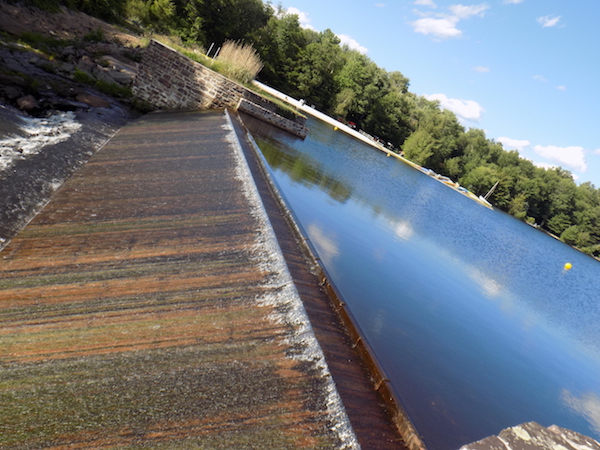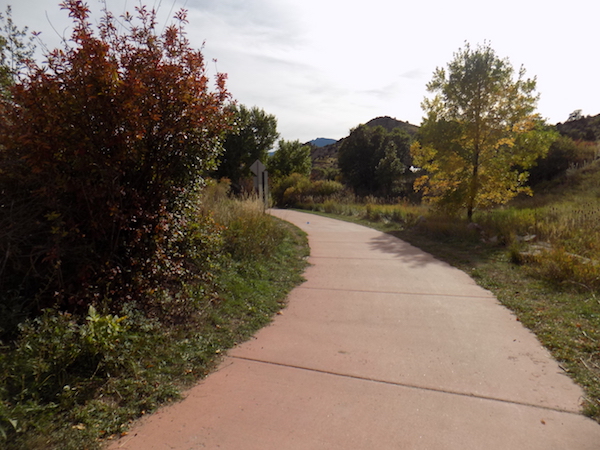
Take a stroll through any old cemetery and you will see that many people died at a young age. Graveyards are filled with the deaths of innocent children, hard working people, and people who met their end in the most tragic way. While we might easily list deadly common accidents in our modern world, such as car accidents and accidental drug overdoses, here is a list of some fairly common deadly accidents in the 1800s.

Horse Riding Accidents
We have our car accidents and back then they had horse riding accidents. Modes of transportation have always held danger. From an article in The New York Herald dated July 02, 1844:
“On Wednesday morning a young lady named Susan Logan was killed under the most frightful circumstances. She started from her home, a few miles beyond Chartier’s Creek, on horseback to come to market, and had come but a short distance, when her horse became frightened and ran off; she exerted herself for some time to retain her seat in the saddle, but the horse still becoming more unmanageable, she was finally thrown off, her foot remaining in the stirrup. The horse sped along with frightful rapidity, dragging the poor girl, whose head beat against the ground at every leap, until at last the saddle stirrup gave way, and her mangled body was left laying at Chartier’s Creek Bridge, on the Steubenville road, where she died a few minutes later.” [Source]
The Ice House
Buildings where large blocks of ice were kept were not strangers to horrible, fatal accidents. Here is one account found in 1874:
“A young man named John Swartz, of Allentown, was killed on Thursday morning last, while engaged with others in filling an ice-house. The ice was being raised by means of a derrick. They had continued their work for some time, when a large piece of ice in process of hoisting broke loose and fell, striking young Swartz on the back of the head and neck, as he was bending in the act of preparing another piece for hoisting. He died almost immediately.” [Source]
Accidental Shooting
Accidental shootings were as common yesteryear as they are today. Firearms should always be a handled safely and, of course, should never be flaunted as play toys. The following accidental shooting happened in 1874:
“When will people learn that fire arms are not to be trifled with? Chas. Jetter, a young man much given to sky larking, called on Miss Lizzie Tamplin, and while teasing her conceived the bright though not original idea of putting a pistol at her and telling her to ‘look out.’ Much to the surprise of Jetter the pistol was discharged wounding the unfortunate young lady. Charles immediately started for a physician, and a policeman in turn was soon desiring an ‘interview’ with Charles. Miss Tamplin will lose an eye and probably her life. Both parties state that the shooting was purely accidental, Jetter says ‘he was not aware the pistol was loaded’” [Source]
Uncooked Meat
This account of eating uncooked ham gives me nightmares. From June 13, 1874:
“A person recently died in this city from eating uncooked ham. His sufferings were of the most excruciating kind, and he was literally devoured by worms. A powerful microscope revealed in the ham hundreds of trichinae that were sporting around like immense boa constrictors. We advise all persons not to eat meat of any kind unless it has been previously cooked, as there is always more or less danger from the presence of these nauseous vermin.” [Source]
Child Run Over
Being a mother, I have a difficult time reading any account where a child has been injured or killed. On the other hand, these children should never be forgotten, and so I include this gut wrenching story from the past that is all too similar to the stories of the present day.
“On day last week a teamster in the employ of Isaac Miller, in West Penn, some distance beyond Stinesville, drove over a child of a Mr. Sassaman while it was at play in the street in front of the house. The wheels passed over and broke both of the arms of the little one, as also one of its legs, and altogether its injuries were of so serious a nature that it will hardly be able to recover, the attending physicians have already been compelled to amputate one of the upper limbs. We did not hear whether the accident happened through heedlessness on the part of the driver, but if so, he should be arrested and punished. We can not well see how such an accident could happen if the man in charge of the team had his eyes and thoughts properly directed.” [Source]

Drowning
Children and adults would swim in the natural rivers and sometimes they would get pulled under and drown. It still happens today, wither it is drowning from swimming or drowning from a suicidal jump off of a bridge.
“The season of the year has arrived for drowned bodies to be found in our rivers, and the Coroner is kept busy with drowning cases.
“The small boy, who slips away from his parents, goes in bathing, and swims far from land, and is drowned, is as numerous this season as ever, and the youth who starts off with a sail boat, which he does not know how to manage, and meets a watery grave, has put in an appearance. Many accidents are caused at the ferries by persons attempting to jump from the boat to the wharves, and excursion parties on the rivers frequently lose some of their number, who have indulged too freely of the “ardent,” and seat themselves on the railing of the boat and are thrown overboard by a sudden lurch of the vessel.” [Source]
Struck By Train
Getting struck by a train was extremely common back in the 1800s. Many people walked the railroad lines to get from one town to the next. It was often a more straight forward path to take than to walk the winding back roads. Instead of walking beside the tracks, many simply walked on the tracks, resulting in numerous deaths and injuries.
“On Saturday evening, two men in search of employment, were walking on the Lehigh Valley Railroad a short distance below Redington. The men were deeply engaged in conversation and did not notice that a train was approaching from behind. When the train was within a few feet of them, one stopped to light a pipe, and while thus engaged the engine struck and killed him instantly. His partner was standing on one side, and escaped with a few injuries.” [Source]
Kerosene Lamp
Cruising through the ads in old newspapers, there were a lot of advertisements for “safe” kerosene lamps that promised to never shatter or explode. Was this a problem back then? You can bet your bottom dollar it was. Exploding kerosene lamps cause plenty of house fires and even deaths, such as was reported in this newspaper blip:
“In Salem, Mass., on Tuesday evening, Mrs. Mary C. Lech, a nurse attending upon a sick lady in Margin street, was burned to death by the explosion of a kerosene lamp.” [Source]
Falling Through Ice
Before safety measures were put in place and people were forbidden from skating on the ice in public parks, ice skating and running across frozen ponds and lakes was a favorite past time. It was also the cause of many accidental deaths. Searching through the winter editions of newspapers during the 1800s you will find many heart wrenching stories as the one below:
“Seven children, four of them sisters names Williams, were skating near Ennis, Tex., when two of the sisters and a young man fell through the ice. Seeing their danger, the other two sisters, ages nine and thirteen, went to the rescue, accompanied by their young brother, but they, too, fell in and the entire party were drowned.” [Source]
Suicide
While not technically an accident, suicide claimed the lives of many people in the 1800s. During that century, there was no real help for people who were experiencing emotional troubles. Self medicating with drugs and alcohol were just as common back then as they are now. When people finally reached the bottom, they turned to suicide, as did this man in a report from July 03, 1844:
APPALLING SUICIDE — A young man, only 31 years of age, named Henry A. Davis, born in England, who resided at No. 42 Wooster street, committed suicide by cutting his throat in a most shocking manner with a razor, about 6 o’clock this morning. He died soon after he committed the act. He had been desponding for a length of time — was a clark by occupation, and also a man of family. The coroner held an inquest on the body. Verdict, “Suicide, while laboring under mental alienation,” &c. [Source]

